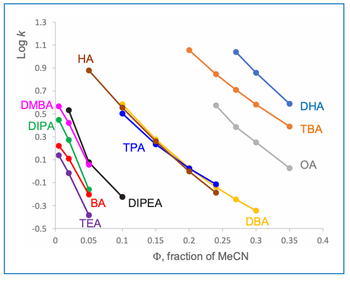
E-Separation Solutions
- E-Separation Solutions-03-23-2007
- Volume 0
- Issue 0
Ask the Editor: Advantages of Monolithic Stationary Phases for Liquid Chromatography
The major advantages of monolithic phases are their ability to withstand high mobile phase flow rates and the rapid separations at low back pressure that can be achieved with their use.
A reader recently asked:
What are the advantages of monolithic stationary phases for
The major advantages of
Modes of separation include ion-exchange, hydrophilic interaction, reversed- and normal-phase, and affinity chromatography. More information about monolithic phases can be found in an article by Frantisek Svec of the University of California, Berkeley, at the following link:
Questions?LCGC technical editor Steve Brown will answer your technical questions. Each month, one question will be selected to appear in this space, so we welcome your submissions. Please send all questions to the attention of "Ask the Editor" at
Articles in this issue
almost 19 years ago
Technology Forum: Gas Chromatographyalmost 1819 years ago
Laboratory Information Management SystemsNewsletter
Join the global community of analytical scientists who trust LCGC for insights on the latest techniques, trends, and expert solutions in chromatography.




